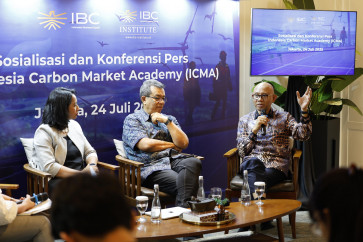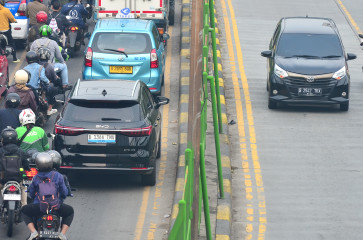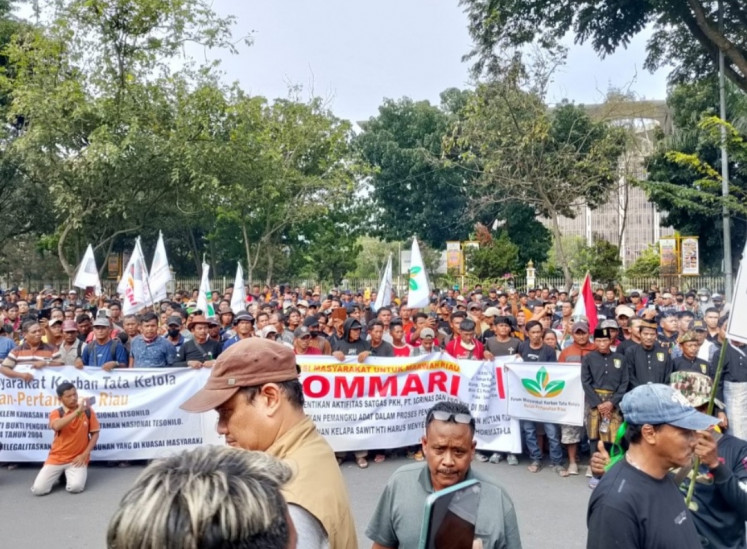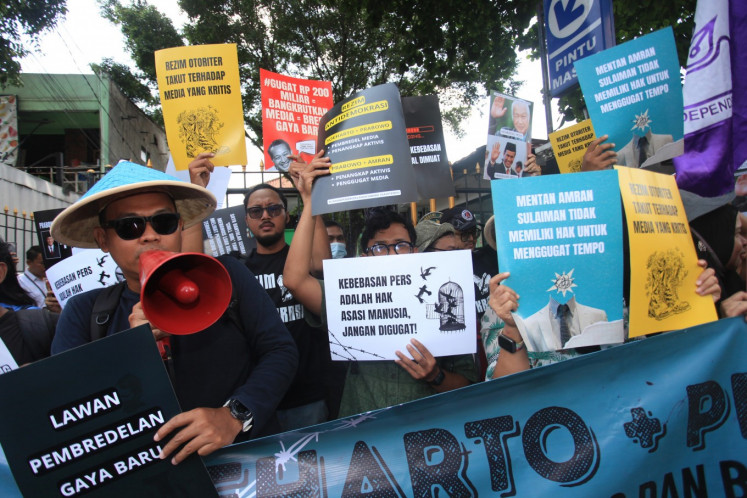Popular Reads
Top Results
Can't find what you're looking for?
View all search resultsPopular Reads
Top Results
Can't find what you're looking for?
View all search resultsJamkesmas: Dubious scheme prone to abuses
Like smoke in the wind, the corruption case involving Agustina Rante, former head of Mabelopura public health center, has left the daily talk of residents in South Palu district, Central Sulawesi
Change text size
Gift Premium Articles
to Anyone
L
ike smoke in the wind, the corruption case involving Agustina Rante, former head of Mabelopura public health center, has left the daily talk of residents in South Palu district, Central Sulawesi.
People flock to one of the busiest health center in the city, some checking their health or getting ready to work, without stopping to discuss Agustina's trial nor the Rp 300 million (US$31,500) in health insurance funds for the poor, known as Jamkesmas, that she had piled in her private account last year.
"I'm just happy that the services are better now. They *the officials* used to tell us to find our names in the list of regular patients. It was supposed to be their job. But now they are all nice," said Adeline Inkirawang, 24, who counts on the center for her family's medical check-up.
About two years ago, uneasiness shadowed the health center. The brazen presence of its new head, Agustina, had deterred other officials. She was cold and distant with her colleagues, making important decisions on her own.
This included managing the Jamkesmas fund, directly channeled through state-owned postal service PT Pos Indonesia.
It was a common knowledge among the employees that Agustina piled all the insurance money in her own bank account after getting a permit from the local health agency to disburse the money.
The fund stayed in her account for more than a year with only some distributed to finance the healthcare claims at the center.
By the end of the year, she had no problem with the government audit agencies as all of the reports were only paper works and she could keep the money for next year's claims.
"When we asked her about the money, she always said *it is my authority and no employees should bother about this'," said a senior and high-ranked official at the center who requested anonymity.
What Agustina might have forgotten is that while a herd would not attack individually, but when angered, would be able to stomp a beast to death together.
Her constant evasiveness prompted a strike from 32 officials of the center and reports to police and local prosecutor's office.
Agustina was sentenced to one year and six months last November and is currently under house arrest while waiting for her appeal.
When The Jakarta Post visited her recently, she confirmed the stories.
Retaining a cold and no-nonsense manner, she did not try to defend her actions. "I was proven guilty by the court so there is no need to ask any more questions about it."
It might be debatable to say that Agustina was purely a crook or someone who saw an opportunity to benefit from Jamkesmas' loopholes.
The program, in which the government paid Rp 5,000 per poor person per month to cover healthcare claims at hospitals and public health, is included as social assistance in the government's accounting system, helping it escape from audit mechanisms at the end of fiscal year.
The hospitals and the public health centers only have to report to the ministry about their fund allocation, without having to receive further probe from the Supreme Audit Agency.
The government took over the health plan, formerly known as Askeskin program, from PT Askes in 2008, blaming the latter for inefficient practices and Rp 1.4 billion of corruption.
As it turned out the government, through the ministry, however, has not yet to improve the system. The program has not benefitted the recipients as the financing and claims registry are still flawed.
Dozens of media reports and field experiences have proven that entitlement did not improve with many poor people still having to pay their health bills or being denied from any care.
This is regardless the ministry's National Health Insurance (Jamkesmas) Center, which operates the health plan, which claimed zero deficits in its report in 2008 and expected the same result for last year.
The Supreme Audit Agency encountered obstacles when auditing the ministry's 2008 fund because reports from the Jamkesmas fund are incomplete.
The agency, in its report, finally only issued an "acknowledged" status on Jamkesmas' fund disbursement, which means that the reports' unaccountability roots in the disbursement system rather than misconduct during the procedure.
By the end of 2009, the center concluded the reports on the 2008 budget of Rp 3.6 billion with 87 percent could be reported on the paper while the remainder was reported "in various ways".
The case in Palu was just one of the cases as many of other hospitals and public health centers failed to make full reports on their Jamkesmas fund allocation.
There are 41 hospitals that have yet to report their 2008 budget as of the last quarter of 2009. Ujung Berung hospital in Bandung, for example, has yet to report any Jamkesmas disbursement in 2008.
"It could be that they were overwhelmed with the abundance claims by the end of the year," said Indra, an officer of Bandung municipality's Jamkesmas management team, which oversees allocation in 15 public and private hospitals.
He said he already asked the hospitals to report their claims to the team monthly to avoid similar confusion for the 2009 reports.
Health Minister's expert staff on health financing and community empowerment, Chali Masulili, who headed the center during 2008 to 2009, acknowledged the flaws of Jamkesmas system, which were rooted in the ministry's double functions as a regulator and as an insurance payer.
"We have to allocate money and to verify its allocation at the same time. That's too many responsibilities to have at once," Chalik said.
Ruslan Sangadji from Palu, Central Sulawesi, and Yuli Tri Suwarni from Bandung, West Java, contributed to the report.










